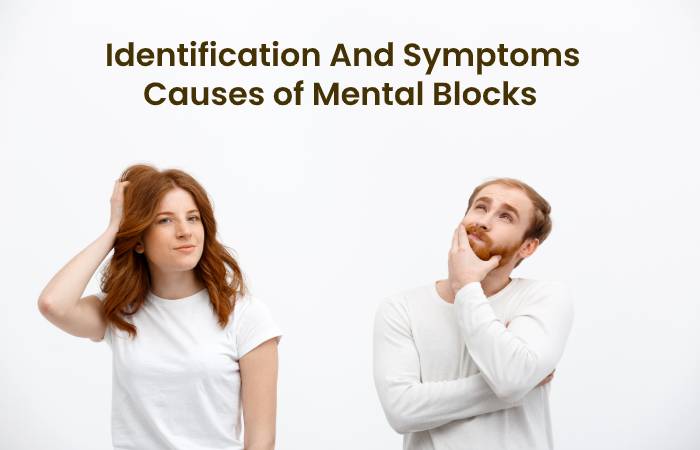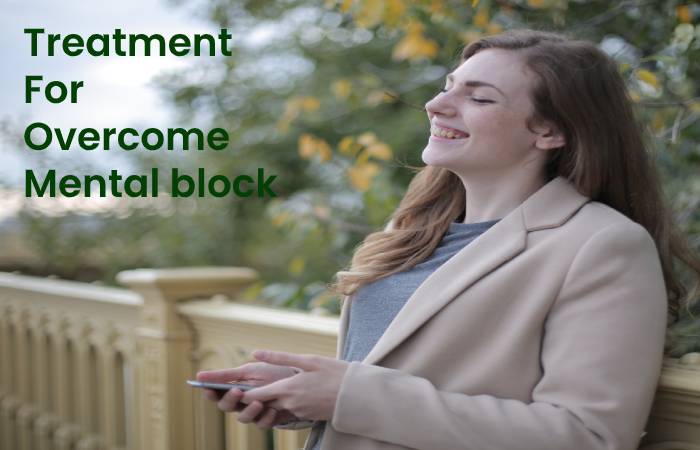Relating your emotions to your brain, and you tend to consider them as different parts are quite a difficult task. However, you have also heard some time to have a clear Mental Blocks.
Table of Contents.
It is essential to keep our emotions at bay, for example, when you are too excited to think, too much irritated to be even-tempered, or too preoccupied to react to some significant event happening in front of you.
Emotions help as much as they hinder your mind, so the mental blocks are nothing more than the expression of an emotional block. With this, we can say that the trigger for the block will sometimes think and other times, emotion.
What is it Mental Block
The mental block is the interruption of the brain process that allows us to start or finish an activity or solve a situation. Hence, it can be at a specific moment, but it can also last in time; it is the famous phrase “I feel stagnant. “
A patient was examining her last law exam. When she finished it and went to write her ID in the private data identification part, she did not remember. How was it possible that she forgot a number that had accompanied her all her life? The answer is a mental block; perhaps your brain decides to forget something so essential. It is because it gather all your energy for the exam due to a heavy stress load.
Let’s Look at Some More Causes:

When you run out of words, when you can’t think clearly, or when you go blank, you are experiencing a specific mental or emotional blockage.
It is a situation that can occur at any time and circumstance. Similarly, the problem arises when they last over time, and that ends up being an obstacle that hinders our habitual capacity to feel and perceive.
If you cannot sleep, your problem is not insomnia; it is something that is behind it; the same happens when you block yourself: the blockage is the symptom, it does not happen because it does, it occurs because a series of environmental, social, educational and learned they cause it to generate.
Here I will tell you some of the causes why this type of disconnection occurs in your brain:
- Defense mechanism: in very stressful situations, our brain concludes that we do not have the necessary tools to cope with the event. On the other hand, it chooses to disconnect to avoid suffering; blocking by a defense mechanism can lead to loss of consciousness. For example, we are fainting when hearing highly unexpected news.
- Anxiety: anxiety is an incompatible response to fear, usually an irrational fear, the blockage can be the consequence of that response. For example, the lack of control over an environment generates anxiety factors that can lead to mental blockage.
- Low level of emotional intelligence: knowing yourself also has to do with recognizing a feeling the moment it appears; the ability to follow your emotions moment by moment is crucial for understanding yourself, on the other hand, disability To perceive our emotions leaves us completely at their mercy, just as necessary is knowing how to identify the feeling than to handle it. For example, if every time you feel embarrassed when speaking in public, you block yourself, there is a problem in identifying and managing the emotion of shame. Therefore it will be necessary to work on it first.
- Guilt: Many people grew up under the tutelage of fear and shame without having the freedom to doubt and question their behavior. Parents who punish or criticize the slightest mistake create adults with a lack of confidence in themselves, low self-knowledge, and low self-esteem. The most significant injury is not loving by anyone. It can eventually turn into emotional severe, or blockages.
- Continued stress: excess workload, the death of a loved one, doing too many activities, having too high expectations, or financial problems are sources of much pressure that can correctly make your mind say enough! And collapse.
Identification And Symptoms of Mental Block
It is easy to identify a specific mental blockage, and our mind goes blank. The words may not come out; it is the inability to think clearly when the problem is more significant.
The blockage has hindered part of our day to day symptoms such as:
- Loss of energy: there has come a time when any plan makes you lazy. People assume they do not have enough strength to do their daily activities.
- Exhaustion: physical and mental overload works.
- Dissatisfaction: it relates to your life in general.
- Organizational disability in work and personal sphere: when you feel stagnant, it becomes difficult for you to make decisions. And also, the ability to face problems and things that previously could seem very simple are not now.
- Constant fears and insecurities: they appear accompanied by mistrust in yourself and low self-esteem.
- Somatization: mind and body are related; when mental blocks appear, they can bring with them headaches, skin problems, or gastrointestinal problems.
Treatment For Overcome Mental Block:

As always, the first thing is to recognize the cause of the blockage. What generates these specific blocks for me? Or Why do I feel that I am not moving forward, stagnant? Once you have the cause or causes that create this situation, and with the help of a professional, you can follow these recommendations to deal with the blockage:
- Enjoyable activities: you need to clear your mind and stay active: read, run, learn a language, travel, climb mountains, etc. The important thing is to look for activities that interest you and force you to get involved.
- Know your emotions: What is happening inside me right now? Observe, feel the emotion, name it, identify it, and don’t let it take over you.
- Learn to relax: go-to techniques that help you, always do it accompanied by conscious breathing. Do you know mindfulness? With the practice of mindfulness, you will be able to work techniques to reduce stress and anxiety.
- Love yourself !: what you think about yourself, what you think you are worth (your self-esteem) is very important; help yourself to increase it by looking for situations that give you confidence and security.
- Set manageable limits to meet: and increase the demand little by little.
- Seek to develop your creativity: through painting, writing, cooking, or any activity that helps you enhance it.
- Always introduce breaks: in your activities.
- Express the unexpressed and close the non-closed: Freud said that unexpressed emotions never die; they stay there and come out in the ugliest way. Expressing yourself will help you put your thoughts and feelings in order so that a blockage does not occur—the same.


